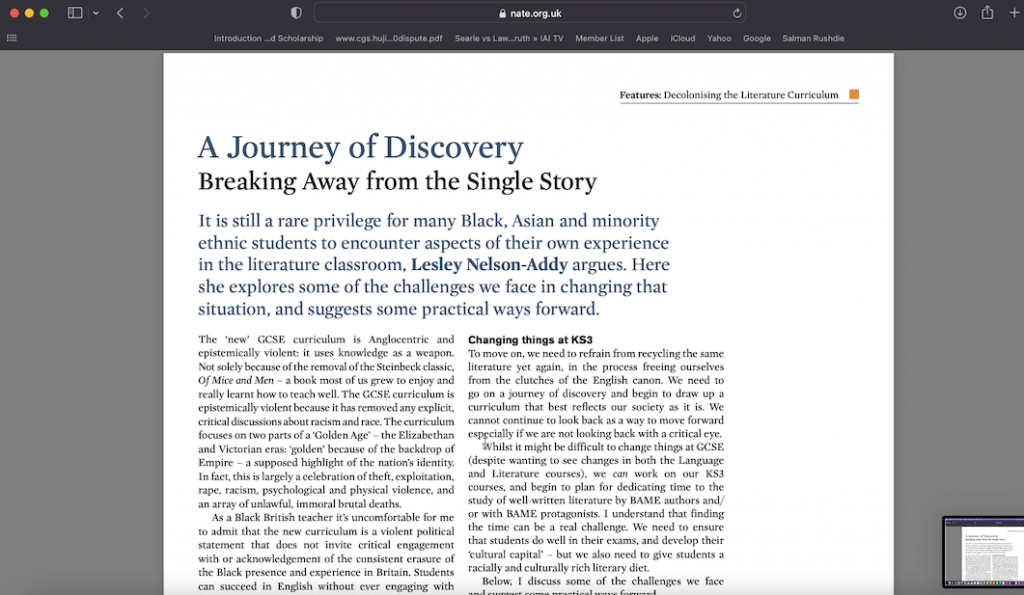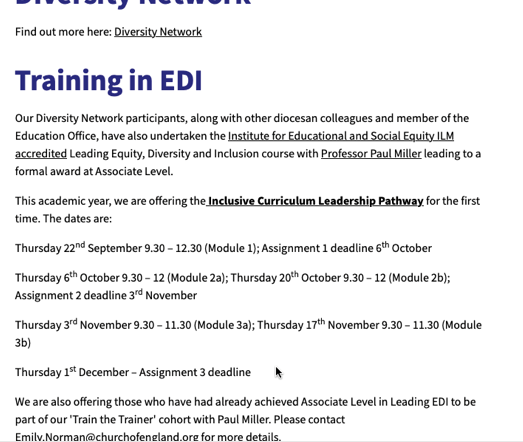EXAMPLES OF POLITICALLY PARTISAN CONTENT, PRACTICES & PROFESSIONAL DEVELOPMENT IN SCHOOLS (PART 4)
Below is a selection of recent examples that indicate that the education profession – from Exam Boards, educational publishers, Church of England Education Board, to local schools – are, wittingly or not, endorsing or promoting a minority-held, radical, narrative of British society, culture and history as systematically and institutionally racist. This is not the same as teaching contested ideas impartially: it is legitimising a radical ideology about race (rooted in Critical Race Theory) by delegitimising established, liberal ideas and practices about race (rooted in Enlightenment values and democratic politics). It is being introduced in schools through the following routes:
- Part 1: Partisan policies/ practices (examples 1 – 5)
- Part 2: Partisan Curriculum (examples 6 – 10)
- Part 3: Partisan professional development (examples 11 – 13)
- Part 4: Partisan professional associations (example 14 & 15)
Part 4: Partisan professional associations
Example 14: Partisan professional association
From ‘Changing the Narrative’, Teaching English, National Association of Teaching of English (NATE), Issue 23. The claim that the GCSE curriculum is ‘epistemically violent because it has removed any explicit, critical discussion about race and racism’ is a highly speculative, and contested one. It politicises literature, its role as a school subject, and ignores the reality of literature as an aesthetic form of art. Framing subjects in this way is not just adding historical context, it is an explicit political claim that stigmatises other approaches to studying literature by implying they are ‘epistemically violent’. In doing so, it normalises a rigid narrowing of interpretation – the opposite of what the arts are supposed to encourage.
Example 15: Partisan professional association
The screenshot below is from the Church of England’s Education Office’s website: https://www.cefel.org.uk/DEI/ . They have been working with the Institute for Educational and Social Equity, which sounds like an acceptable academic organisation. Its report, ‘A Report on Factors for and/or contribute to BAME school leaders exiting the profession or accepting a junior role’, shows its commitment to Critical Social Justice, including the academically discredited practice of unconscious bias training: For example, on page 7, the authors write:
Training in ‘Allyship’, ‘Unconscious Bias’, ‘Conflict Management’, ‘Anti-Racism and Leadership’, ‘Leading Diverse Teams and Workforce’ should be provided for Chief Executives, Executive Headteachers, Headteachers and other school leaders on an ongoing basis as part of an agreed programme.
Conclusion
The views contained in these examples may have a place in adult democratic society, but not in schools. The introduction of tenets from Critical Social Justice as principles of school practice, as well as curriculum framing, breach the duty to teach impartially as stated in the Education Act 1996. Our examples suggest that official imprimatur is being given to organisations espousing an extreme critical and minoritarian ideology. There is an urgent need for the Department of Education to address this growing and systemic problem within education and take robust action to ensure schools educate not indoctrination.

